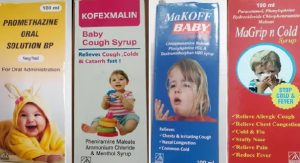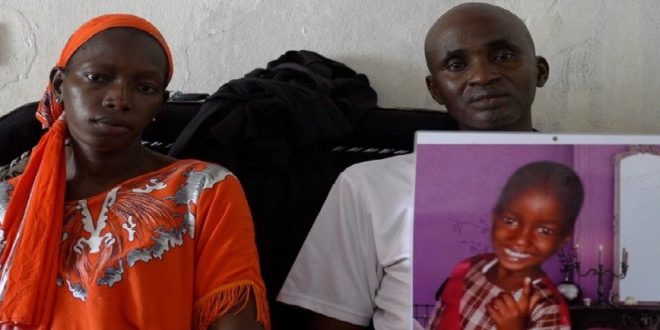23-08-2023
Bureau Report + Agencies
BANJUL/ NEW DELHI: In September last year, Ebrima Sajnia watched helplessly as his young son slowly died in front of his eyes.
 Sajnia, who works as a taxi driver in The Gambia, says three-year-old Lamin was set to start attending nursery school in a few weeks when he got a fever. A doctor at a local clinic prescribed medicines, including a cough syrup, but the feverish child refused to take them.
Sajnia, who works as a taxi driver in The Gambia, says three-year-old Lamin was set to start attending nursery school in a few weeks when he got a fever. A doctor at a local clinic prescribed medicines, including a cough syrup, but the feverish child refused to take them.
“I forced Lamin to drink the syrup,” recalls Sajnia, sitting at his home in Banjul, capital of The Gambia.
Over the next few days, Lamin’s condition deteriorated as he struggled to eat and even urinate. He was admitted to a hospital, where doctors detected kidney issues. Within seven days, Lamin was dead.
He was among around 70 children younger than five who died in The Gambia of acute kidney injuries between July and October last year after consuming one of four cough syrups made by an Indian company called Maiden Pharmaceuticals.
In October, the World Health Organization (WHO) linked the deaths to the syrups, saying it had found “unacceptable” levels of toxins in the medicines.
A Gambian parliamentary panel also concluded after investigations that the deaths were the result of the children ingesting the syrups.
 Both Maiden Pharmaceuticals and the Indian government have denied this – India said in December that the syrups complied with quality standards when tested domestically.
Both Maiden Pharmaceuticals and the Indian government have denied this – India said in December that the syrups complied with quality standards when tested domestically.
It’s an assessment that Amadou Camara, chairperson of the Gambian panel that investigated the deaths, strongly disagrees with.
“We have evidence. We tested these drugs. [They] contained unacceptable amounts of ethylene glycol and diethylene glycol, and these were directly imported from India, manufactured by Maiden,” he says. Ethylene glycol and diethylene glycol are toxic to humans and could be fatal if consumed.
It’s a difficult situation for The Gambia, one of Africa’s smallest countries, which imports most of its medicines from India. Some bereaved parents say they don’t trust Indian-made drugs anymore.
“When I read that a medicine is from India, I barely touch it,” said Lamin Danso, who lost his nine-month-old son but the reliance on Indian drugs is unlikely to change anytime soon.
“Most pharmacists are still bringing in drugs from India, it’s far cheaper than importing drugs from America or Europe,” says journalist Mustapha Darboe.
India is the world’s largest exporter of generic drugs, meeting much of the medical needs of developing countries but allegations that its drugs have caused tragedies like the one in The Gambia and in other countries such as Uzbekistan and the US have raised questions about manufacturing practices and quality standards.
 Pressmediaofindia
Pressmediaofindia




